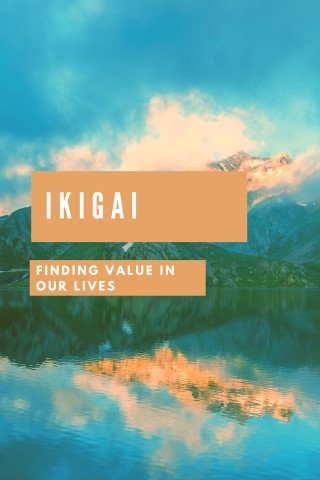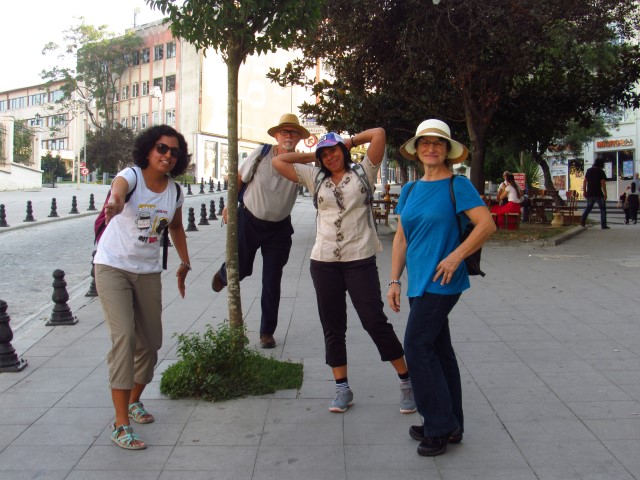The other day, I came across an article that mentioned ikigai. Having been to Japan last year and having fallen in love with the country, I was intrigued.
What is Ikigai?
According to Wikipedia:
As I dug deeper, I realized that ikigai has exploded into the world recently, much like hygge. Scores of articles now reference ikigai, and I liked the BBC’s definition of ikigai the best:
There is no direct English translation, but it’s a term that embodies the idea of happiness in living. Essentially, ikigai is the reason why you get up in the morning.
 Being the naturally brooding sort, I then spent much of my morning wondering about the reason I had got up. Some of the articles I read seem to want to make of this concept a science – complicated Venn diagrams exist, all of which seem to point to finding out the “passion” in your life. Essentially, something you have to do. Something to do with work. And something you should do with passion.
Being the naturally brooding sort, I then spent much of my morning wondering about the reason I had got up. Some of the articles I read seem to want to make of this concept a science – complicated Venn diagrams exist, all of which seem to point to finding out the “passion” in your life. Essentially, something you have to do. Something to do with work. And something you should do with passion.
Why I hate passion
Passion, in my opinion, is overrated. It’s also abused. It’s also singularly devoid of meaning. Like a sorry uttered in the heat of the moment, the word lacks depth. Too often, I hear people tell me, “I am glad you are following your passion,” when they learn of my absence from the regular corporate world. Note that I call it an absence, not a retirement. And when I hear that, I smile politely, but I have no idea what they are talking about. What passion? What following?
I have decided to follow a different lifestyle, an alternative from the one I had known for most of my working life. It wasn’t passion that drove me to that change; it was curiosity. I didn’t hate my last job in Infiniti Research– on the contrary, I had loved most aspects of it. I had enjoyed building up a team of editors, and learning on the way the idiosyncrasies that come with mentoring a team. Passion was not the word on my mind when I decided to freelance and learn the tough nuances of managing a business. It was curiosity.
So, if ikigai is not about passion, then what is it?
There we have it.
What is your life’s worth? What is the value you find in living?Dan Buettner wrote Blue Zones: Lessons on Living Longer from the People Who’ve Lived the Longest, and he especially believes that ikigai is one of the reasons why Okinawa island in Japan, which has, hold your breath, “the lowest mortality rates in the world and the world’s longest life expectancy.”
According to Ken Mogi, another author on ikigai, these are the five points to ikigai:
Pillar 1: Starting small
Pillar 2: Releasing yourself
Pillar 3: Harmony and sustainability
Pillar 4: The joy of little things
Pillar 5: Being in the here and now
I have already spoken about harmony in one of my posts. Unlike hygge, ikigai is about finding value in your life and what you do. Here’s what I think can help you identify your ikigai:
-
Identify your values
I have no idea about a lot of things in life, but I do know that I value honesty and loyalty. I think that I can’t be a ruthless businessperson because I don’t lie, and I can’t just push people into taking the next best ‘deal’. But I can sleep well knowing that the world knows how I implement these values in my life.
-
Identify what you like doing
Too often, we just get caught in doing what we think we like. I don’t particularly like dealing with people who don’t have the courtesy to respond after you spend hours and days giving them an itinerary. I don’t. It’s not what I like doing. But this is part of my job. And there are lots to like about it. I like being on my own, the uncertain chaos of embracing each day knowing that no month brings with it the same paycheck. But. I hate being on my own, not knowing the exact paycheck each month. I like what I am doing. I don’t like what I am doing. But I accept what I am doing. Do you get it? Sometimes, that little awareness and acceptance can add some ikigai.
-
Identify what you would like to do if you don’t like what you are doing
Sounds simple. But many people I speak to don’t have an answer to what they would rather do if they don’t like what they are doing. They all say, “Oh, I want to be like you yaar, but I can’t yet. I have responsibilities. Obligations.”
I don’t know what it is to be me. I am not a free-floating individual with a never-ending bank account with no liabilities. I don’t have a trust fund or a rich family supporting my whims. No. I pay just the same bills as you do and I have just the same ‘obligations.’
Too often, we cover ourselves with naive excuses. Anything is preferable to movement. Statis is not rigor mortis but the comfort of staying where we are.
It hurts to change, so we will do anything in life but change.
Yet, we know that change is part of us.
So, if I don’t like arranging people’s itineraries, then what do I like? I consult for The Hindu Group. If I don’t like structuring their content strategy, what would I like? Would I like to just sit by the brook, read the whole day, watch movies, and write on my book (which has been stuck because one of the inspirations for that book is not there)? Sounds delightful? Sure. And I have a rich husband who buys me the river and the movies and the books and the laptop and the Internet connection. Easy. 🙂
What do I think adds ikigai in our life?

From what I can see, ikigai is to create purpose and value. And for me, purpose and value come from: others.
The connections we form in life contribute a great deal to ikigai. Whatever you do, do it with a little sense of joy.
Not all of what we can bring joy, but find the little moments in every single job. Hate your job? Ok. But there might be an email that brought a smile to your face. A colleague became a well-loved friend. An article you wrote resonated with someone. Some code you created built a great website. You hired someone, giving them a job. You corrected reports and help manuals.
Strong social connections are what give us ikigai. If what we do contributes to someone else’s life, then our ikigai has more value. Identify ways you can do that.

And whatever you do, be. Be this glorious, crappy, human version you are. I don’t know what my purpose in life is, but sometimes, I think my purpose is finding that purpose. Maybe, that gives me enough ikigai to get up in the morning tomorrow.
Books for further reading on Ikigai:
Hector Garcia: Ikigai
Ken Mogi: The Little Book of Ikigai
Isito Nishuro: Happiness in a Japanese Way
Sebastian Marshall: Ikigai








[…] life every day, and trust me, no one has any idea what they are doing with life. You can read about ikigai and hygge all that you want, but I don’t think there are many people who get up thinking: This. I […]